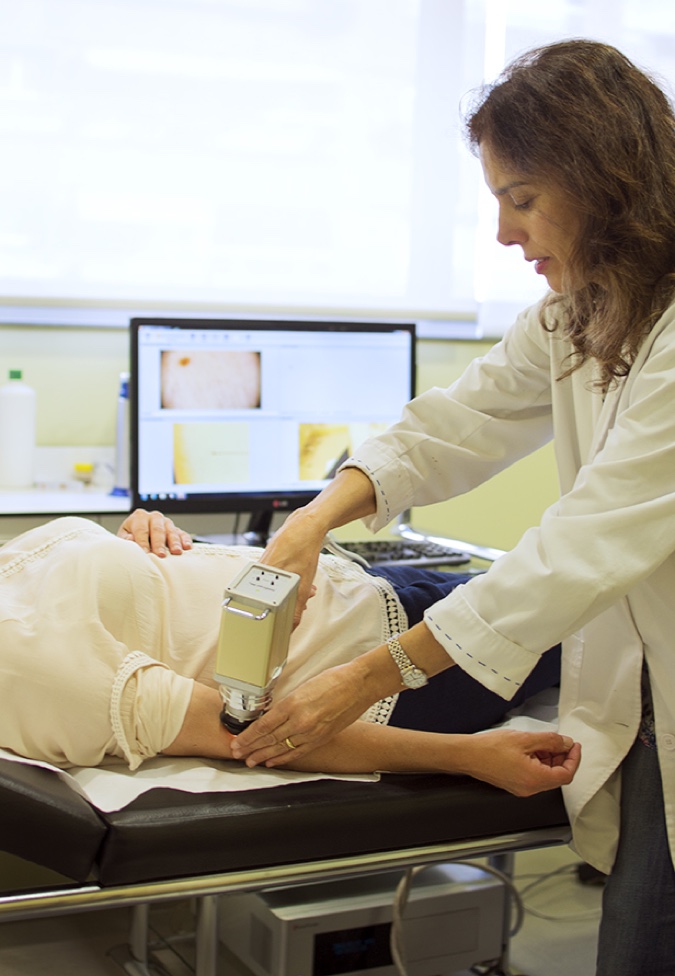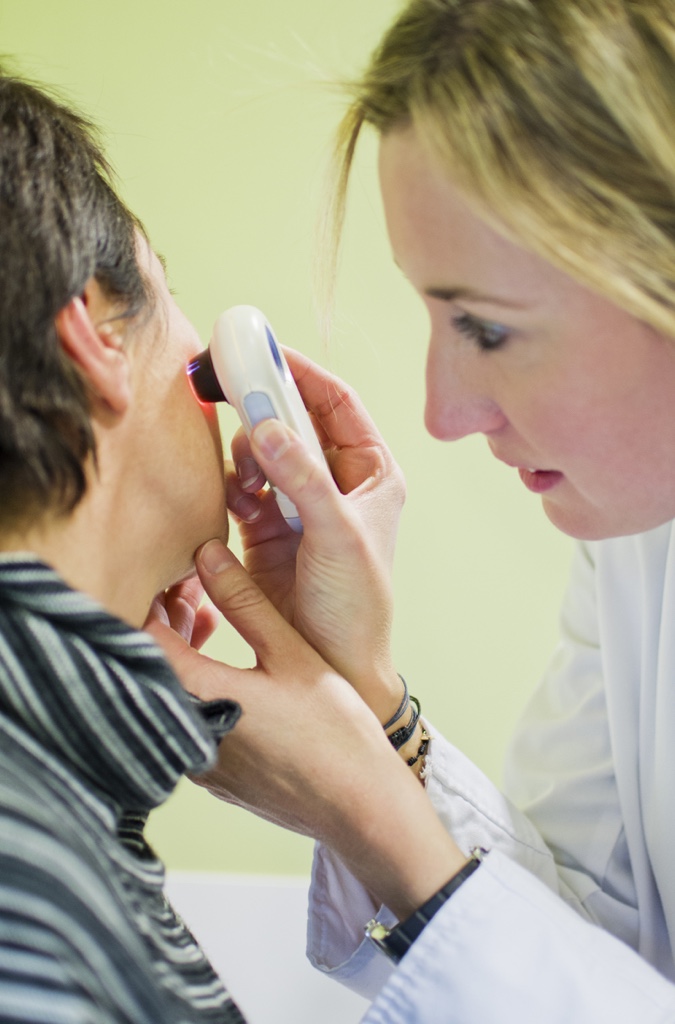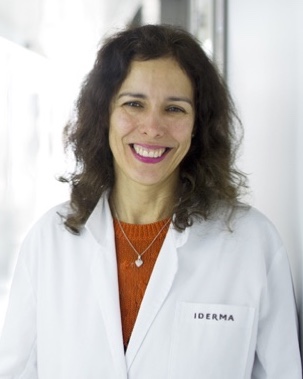Skin Screening Unit
Unit for screening, review or checking pigmented skin lesions in the form of spots, moles or warts (technically called nevus) and for the purpose of early diagnosis of skin cancer (melanoma, specifically).
In recent years, the incidence of skin cancer has increased very significantly. The good news is that, despite the increase in the number of cases of skin tumours, mortality from this disease has stabilised.
A fact that could be due to a greater awareness on the part of the population regarding the importance of early diagnosis and, therefore, dermatological control of moles, spots, warts and other skin lesions.
This is why here at IDERMA, the Institute of Advanced Dermatology and Dermatology service of the Dexeus University Hospital of Barcelona - Quirónsalud Group, we have the Nevus Control Unit (moles).
Skin cancer incidence
According to data from the Spanish Association of Dermatology and Venereology, the incidence of melanoma in Spain is 9.7 per 100,000 people per year (which means about 4,000 new cases).
As far as non-melanoma skin cancer is concerned, this is 160 cases per 100,000 inhabitants per year, with 118 basal cell carcinomas and 42 spinocellular carcinomas.
Although skin cancer is more frequent in the over-50's, more and more cases are diagnosed in young people due to unhealthy habits involving intense sun exposure in short periods. Hence, the main avoidable risk factor for most melanomas is overexposure to ultraviolet radiation, either natural (solar radiation) or artificial (tanning booths/UVA rays).
Self-evidently, there are genetic factors that cannot be modified, such as the skin type (greater or lesser ability to tan), tendency to develop nevus (moles), and certain mutations that predispose to tumours, even in the absence of excessive sun exposure.
There are also some chemical factors such as arsenic, nicotine or pitch that can cause non-melanoma skin tumours.
Likewise, avoiding excessive sun exposure and burns in childhood and adolescence is a very good preventive measure, since sunburn at this stage of life is determinant of some cancers in adulthood.
The Importance of early diagnosis in skin cancer
Here at IDERMA, we always insist on the importance of periodic dermatological examinations and going to the dermatologist with the slightest doubt to rule out the malignancy of any lesion and, if so, be able to detect and treat it in time. Especially in the case of moles, but also spots and warts, as well as any new lesions that appear on the skin.
These checks are essential, since the dermatologist is the professional who knows best and can provide guidance on the most appropriate measures for skin cancer prevention and it has the most effective and reliable diagnostic means for its early detection.
That's why our Nevus Control Unit offers a highly specialised service in the diagnosis, control and treatment of moles or nevus.

The IDERMA Prevent Programme
Here at IDERMA we have IDERMA Prevent, a programme that seeks to make the skin check available to everyone, especially for moles, spots and warts.
These check-ups are especially important to confirm the benignity or degree of risk of progressing to skin cancer from these lesions.
But this IDERMA Prevent programme also includes lesions that may be considered only as unsightly, since these should always be reviewed by a specialist who carries out an appropriate dermatological diagnosis and indicates the most appropriate treatment.
At this check-up, a specialised dermatologist will also examine all the skin on the body with the latest technology and, after the examination, will determine the following aspects:
· The benignity or dangerousness of the lesions detected.
· The most appropriate treatment, where necessary. If it is only an unsightly lesion that you wish to remove, the most appropriate technique will be recommended.
· Periodic monitoring and follow-up protocols for these injuries.
· Customised sun protection guidelines and recommended sun exposure habits.

| ARRANGE VISIT |

